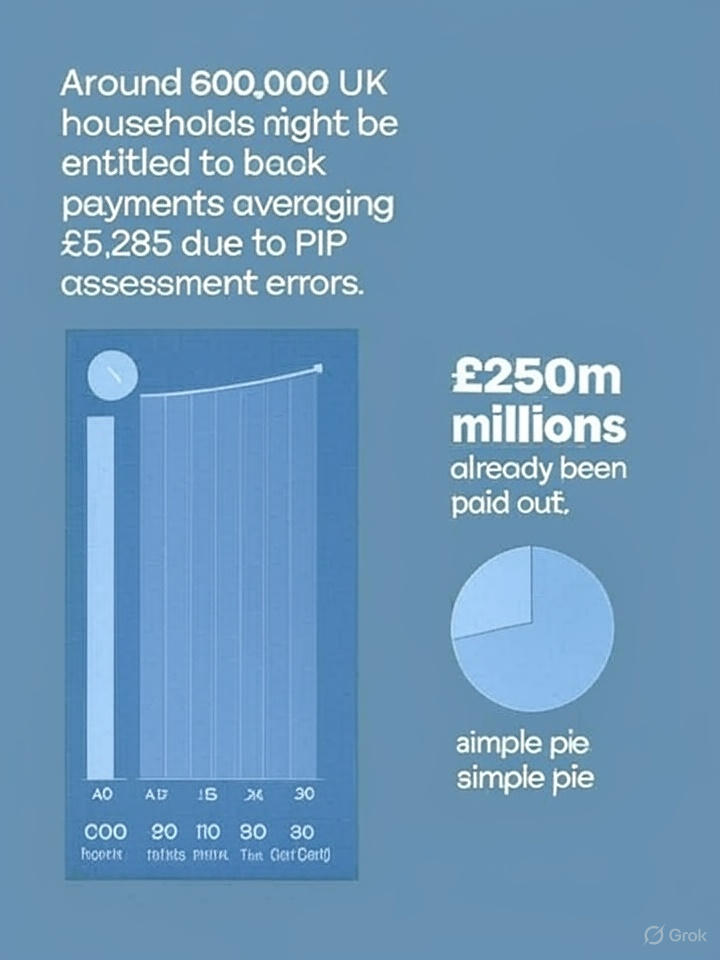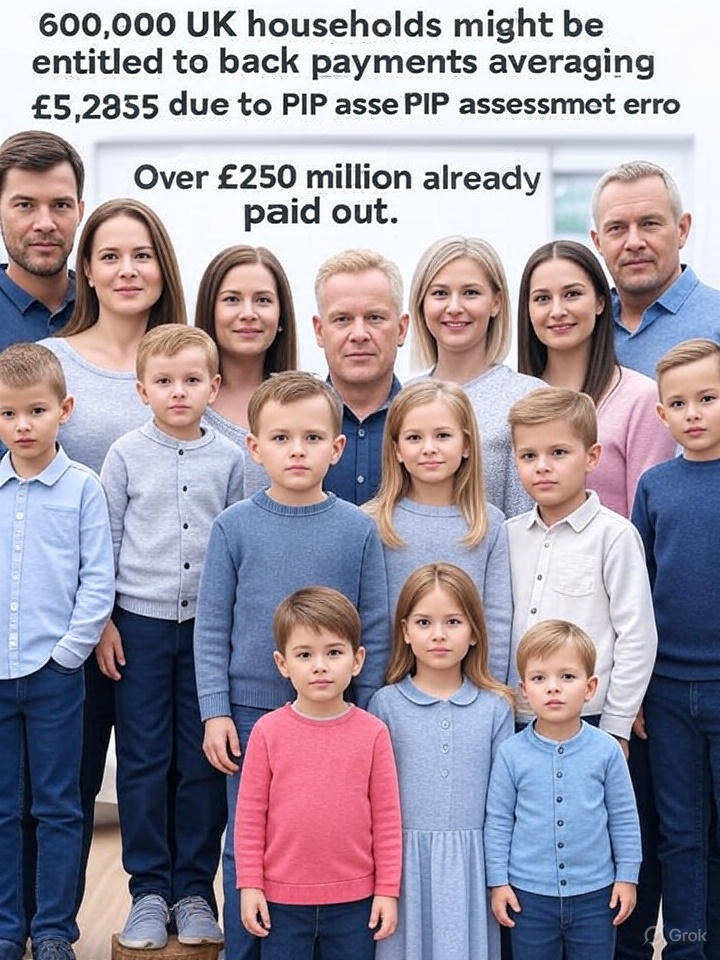Background
Personal Independence Payment (PIP) is a UK benefit for individuals aged 16-66 who require assistance with daily living or mobility due to disability or health conditions (Wikipedia). In July 2019, the Supreme Court delivered a pivotal ruling known as the “MM judgment” clarifying that claimants may earn full social support points even for assistance provided before or after social activities, and not just during them (Benefits and Work).
However, the Department for Work and Pensions (DWP) had been awarding only partial points. This meant many people were underpaid or incorrectly denied PIP.
Scope of the Error & DWP Review
- Following the 2019 ruling, DWP initiated a large-scale review in 2021, examining PIP decisions from April 6, 2016, onward (Triangular Unbalanced Oil and Vinegar, The Sun).
- So far, over 527,000 cases have been reviewed, with £250 million already disbursed to claimants averaging about £5,285 each (The Sun).
- The DWP estimates that 600,000+ households may be eligible for payments, and around 105,000 cases are still under review (The Sun).
Why It Matters
This isn’t a minor error. Mis-scoring the “social support” descriptor has significant consequences:
- Claimants may have mistakenly received the standard rate instead of the enhanced rate or missed eligibility altogether, based on an incomplete evaluation of their needs (Benefits and Work, The Sun).
- As a result, recipients could see large back-pay sums, sometimes reaching £12,000 in individual cases (The Sun).

Numbers at a Glance
| Metric | Figure |
|---|---|
| Households affected | ~600,000 |
| Reviews completed | 527,745 |
| Payments issued | £250 million total |
| Avg. payment per claimant | £5,285 |
| Remaining cases | ~105,000 |
Related Errors & Ongoing Payments
In addition to this scoring error, the DWP identified two further mistakes:
- Missing NI numbers: ~455 claimants underpaid, receiving ~£500,000 collectively.
- Scottish conversion error: ~4,700 ADP claimants lost entitlement during the transition, leading to £13 million in payouts (The Sun).
Reactions & Next Steps
- Advocacy charities such as Disability Rights UK and Z2K have urged for swift and comprehensive repayments to avoid hardship (Clun).
- Former DWP minister Sir Steve Webb also called for accelerated remediation, emphasizing the moral duty to address errors promptly (Clun).
- DWP has pledged to proactively reach out to affected claimants, though individuals can also request mandatory reconsiderations or escalate disputes to tribunals if not contacted (The Sun).
Political Context & Structural Changes
- The Labour government, led by Keir Starmer, delayed planned PIP eligibility tightening until 2026 to protect current recipients and avoid worsening outcomes (Triangular Unbalanced Oil and Vinegar).
- A three month grace period has been offered to cushion the impact of future rule changes, though concerns persist over the creation of a two-tier system for new versus existing claimants (The Times).
Final Takeaways
- 600,000+ households could be owed back payments averaging £5,285, totaling £250 million issued so far.
- The root cause: DWP’s misapplication of the MM judgment on “social support” during assessments not just misunderstanding of daily living needs.
- DWP & charities are working to complete reviews and reach out to those affected, but with 105,000+ cases pending, many still await repayment.
- Citizens can take action by requesting a review or initiating a tribunal appeal particularly if they believe their claim has been undervalued or declined.
If you or someone you know claimed PIP after April 2016 and had limited or no daily living points awarded, you may be eligible. Check gov.uk for updates, wait for DWP contact, or seek advice from Citizens Advice or specialist welfare rights groups.

